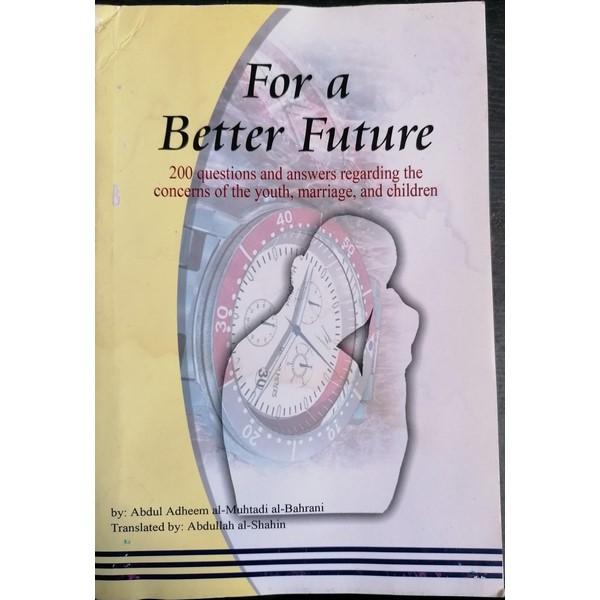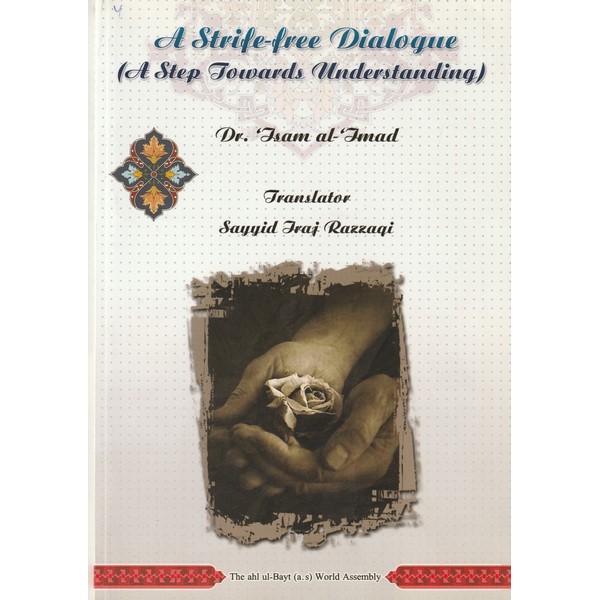| Content | There are numerous ways for man to achieve guidance and emerge from darkness and move towards light.
Allah says in the Holy Quran in 41:53
‘Soon will We show them our Signs in the (furthest) regions (of the earth), and in their own souls, until it becomes manifest to them that this is the Truth.’
Thus Allah uses different means to guide us to the right path; which can be termed as the ‘Light’
One of such methods is through stories.
The Holy Quran is full of stories of past Prophets and previous nations. In fact one of the chapters of the Holy Quran is called ‘Al Qasas’- The Narratives.
Through these stories, people can comprehend and distinguish the paths of progress and regress, and ascent and descent in every field, especially morals.
In fact, during the entire period of his prophet hood, the Noble Prophet , with regards to refinement of souls and perfection of morals, was an exemplar in speech and deed, and had (even) said, “I have been sent (as a Prophet) for (the purpose of) perfecting morals.”
Man’s problem lies in his disregard for virtues, acquisition of vices, and inclination towards lust and obedience to Shaitan. Some men stoop so low that they even lead their lives akin to animals. For the purpose of refinement and treatment of human morals, abatement of rebelliousness and controlling the natural disposition, the Noble Prophet spared no effort and mentioned all that was necessary in this regard.
Anecdotes of Reflection II is a continuation of the book Anecdotes of Reflection I.
This book aims to outline different stories, which have a moral lesson for the reader to take benefit from.
It is hoped that the readers, after going through the stories and narratives, reflect upon and take lessons from them so that they are able to create within themselves, a new impetus towards perfection of morals; and God Willing, those who are endowed with laudable morals, should relate them to others, for rectification and remedy of the weaker souls.
HEAVILY SUBSIDIZED BY IEB OF WORLD FEDERATION | By Abdul Adheem al-Muhtadi al-Bahrani Shipping Costs are £2.99 Per Book | This book, which is written by a well known scholar, a graduate of the Sorbonne, who switched from one Muslim school of thought to another, attempts to prove that the Muslims who truly follow the authentic Sunnah of the Prophet of Islam are actually none other than those referred to as the Shi as. It details how these Shi as (or Shi ites) learn this Sunnah from the closest people to the Prophet of Islam: his immediate family members. It traces the history of the Muslims of the first Islamic century and how they split into two camps, thus setting the foundations for both of these major sects. It also deals with the persecution to which the immediate family members of the Prophet of Islam were subjected and the politicians who played a major role in widening the gap between the followers of this sect and those of that. As for its style, the author restricts himself to quoting major authentic Sunni works to prove his point, relying on an in-depth study of the Islamic history in general and of that of the first century in particular. Many controversial themes are discussed in this book, including that of the infallibility of the Prophet of Islam and of the Twelve Imams who descended from Ali and Fatima, cousin and daughter of the Prophet respectively. Finally, the book concludes with an Appendix containing an Arabic poem in one thousand lines in praise of Commander of the Faithful Ali composed by an Iraqi poet for the Arabic speaking readers.
Heavily subsidized by www.wabil.com | Principles of good governance in the letter of Ali to al-Ashtar refers to a set of instructions and advice for rulers, reputedly addressed at Malik al-Ashtar (d. 657), the Arab military commander and an ardent supporter of Ali ibn Abi Talib (d. 661), who was the fourth Rashidun caliph (r. 656–661), the first Shia imam, and the cousin and son-in-law of the Islamic prophet Muhammad. The letter is attributed to Ali and outlines his conception of just and righteous governance, following the appointment of al-Ashtar as the new governor of Egypt circa 657 CE. Among the earliest extant records about Islamic rule, the letter has received considerable attention throughout the Muslim history as a blueprint for Islamic governance. The theme of the letter can be summarized as justice and compassion for all, regardless of class, creed, and color. Malik was killed en route to Egypt to assume his new post at the instigation of Mu'awiya, the archenemy of Ali.
HEAVILY SUBSIDIZED BY WWW.ISLAMICTHOUGHT.CO.UK | This book contains word searches in following topics. 1Naflah 2 Qasr 3 Ghusl 4 Mayyit 5 Salaatjamaat 6 Sakaraat 6 Afterdeath 7 Ehkame 8 Hunoot 9 Kafan 10 Quboor 11 Barzakh 12 Grave 13 Squeezing 14 Ijara 15 Walidan
HEAVILY SUBSIDIZED BY WWW.ISLAMICTHOUGHT.CO.UK
| This book aims to establish a suitable method of communication with Wahhabis to familiarize them with Shi‘ism, and to prepare a proper ground for their conversion to the school of thought of the Household of the Prophet, peace be upon them. The author Dr Isam wrote book against the Shia accusing them of heresy, before he himself saw the light and converted to Shiaism.
HEAVILY SUBSIDIZED BY WWW.ISLAMICTHOUGHT.CO.UK |













Reviews
There are no reviews yet.